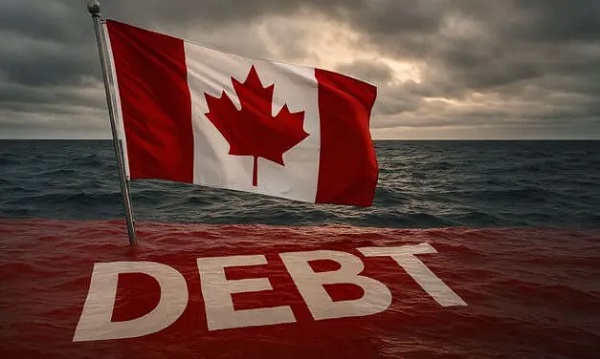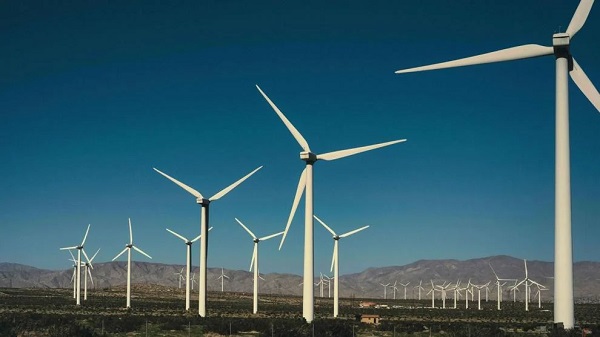Energy
Trump’s plans should prompt Ottawa to reverse damaging policies aimed at oil and gas
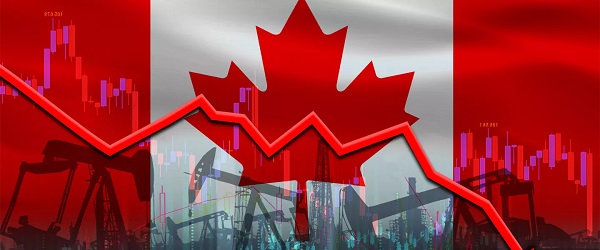
From the Fraser Institute
By Tegan Hill
Adding to a long list of costly federal policies that restrict oil and gas development, the Trudeau government plans to cap greenhouse gas emissions from the oil and gas sector at 35 per cent below 2019 levels by 2030. This is the exact opposite of what Canada needs, particularly given developments south of the border.
President-elect Donald Trump has made it clear he aims to boost U.S. oil and gas production. Pledging to “drill, drill, drill,” Trump will lift restrictions on liquified natural gas exports, expedite drilling permits, and expand offshore oil production through new lease sales. He also plans to create a National Energy Council to establish U.S. “energy dominance” by “cutting red tape, enhancing private sector investments across all sectors of the economy, and by focusing on innovation over long-standing, but totally unnecessary, regulation.” These changes will lower the cost of oil and gas development in the U.S., which means production will increase and commodity (e.g. crude oil) prices will likely drop in the U.S., Canada and beyond.
Of course, this might lower prices at the pump, lower home-heating bills and bring good news for consumers. But policymakers should understand that lower commodity prices would be a big hit for provincial budgets in Alberta, Saskatchewan and Newfoundland and Labrador, which rely heavily on resource revenues. In Alberta, for example, a $1 decline in the price of oil results in an estimated $630 million loss to the provincial treasury. The federal government will also take a hit. In 2022 (the latest year of available data), Canada’s oil and gas industry paid the federal government more than $9 billion in corporate income taxes.
And because the Trudeau government has introduced numerous new regulations that restrict oil and gas development, it would be very difficult for the industry to increase sales volume to offset any loss. And according to a recent report by Deloitte, the government’s proposed emissions cap will curtail oil production by 626,000 barrels per day by 2030 or by approximately 10.0 per cent of the expected production—and curtail gas production by approximately 12.0 per cent.
There’s also Bill C-69 (the “Federal Impact Assessment Act”), which overhauled Canada’s federal environmental review process making the regulatory system more complex, uncertain and subjective. And Bill C-48, which bans large oil tankers off British Columbia’s northern coast, presenting another barrier to exporting to Asia. All of these policies make Canada, and particularly energy-producing provinces such as Alberta, Saskatchewan and Newfoundland and Labrador, less attractive for investment.
Indeed, according to the latest survey of oil and gas investors published by the Fraser Institute, 50 per cent of survey respondents said the “stability, consistency and timeliness of environmental regulatory process” in Alberta scared away investment compared to only 11 per cent in Texas. Similarly, 42 per cent of respondents said “uncertainty regarding the administration, interpretation, stability, or enforcement of existing regulations” was a deterrent to investment in Alberta compared to 13 per cent in Texas. And 43 per cent of respondents said the cost of regulatory compliance was a deterrent to investment in Alberta compared to 19 per cent for Texas. Without strong investment, energy-producing provinces won’t be able to increase production.
Trump’s plan to reduce regulations and bolster U.S. oil and gas production will lead to lower prices for oil and gas. While that’s good news for consumers, policymakers should understand how the new normal will impact government coffers. To offset the loss associated with lower prices and lower revenue, provinces need more natural resource development. But that will require the Trudeau government to reverse its damaging policies and abandon its emissions cap plan.
Economy
Reconciliation means clearing the way for Indigenous leadership

From the Resource Works team.
On Truth and Reconciliation Day, Canadians are asked to honour residential school survivors and to support the families and communities who must live with that history.
It also calls for action, not mere commemoration. The Truth and Reconciliation Commission called for structural change in Canada, and that means clearing the way for Indigenous leadership across this country.
Economic reconciliation is a practical journey that shifts decision-making and ownership towards First Nations and Indigenous people more generally.
Throughout B.C., First Nations are already practicing what that looks like. The Osoyoos Indian Band has built a diverse economy in tourism, wine, and recreation that has sustained steady jobs and revenue.
“I think all Native leadership need to get the economic development focus going on and make the economy the number one issue. It’s the economy that looks after everything,” Chief Clarence Louie has said. That sense of mission, along with assets like Nk’Mip Cellars and Spirit Ridge, has helped to turn Osoyoos into a B.C. success story.
On the coast, the Haisla Nation is leading in innovation in the LNG sector. In 2024, the Cedar LNG facility was granted a positive final investment decision, along with the Haisla’s majority ownership of the $4 billion project.
“Today is about changing the course of history for my Nation and Indigenous peoples,” said Haisla Chief Councillor Crystal Smith during the long approval process. By seeing the project through, Haisla ownership has created the means to fund language, health care, and opportunity for generations that had found all of that out of reach.
In the Lower Mainland, the Squamish Nation’s Sen̓áḵw development is one of the biggest projects in the Vancouver real estate market, and will become an asset for decades to come.
“This project is not just about buildings, it’s about bringing the Squamish People back to the land, making our presence felt once again in the heart of our ancestral territory, and creating long term wealth for the Squamish Nation,” said Council Chairperson Khelsilem.
The Squamish recently restructured the partnership so Squamish holds half of phases one and two and all of phases three and four, while welcoming OPTrust to a 50 percent stake in the early phases. Indigenous leadership is not just transforming the rural resource economy, but the urban one as well.
Chief Ian Campbell of the Squamish Nation, former chair of the Indigenous Partnerships Success Showcase event in Vancouver, has said that economic reconciliation is essential to the future of Canada.

“To move forward and reframe that complex dynamic, and put the lens on economic reconciliation, to me, is the path forward to create mutual benefits and values that benefit all Canadians, which includes Indigenous people,” said Campbell.
For governments and industry, there is a duty to align policy, permitting, and capital flows with Indigenous-led priorities. Beyond benefits agreements, reconciliation requires listening both early and attentively, and ensuring cooperation every step of the way.
The Bank of Canada itself has noted that “tremendous untapped potential exists”, but only when private firms and public agencies commit to economic reconciliation.
Listening also means resisting the temptation to cast Indigenous peoples as either monolithic supporters or opponents of development. Figures like Ellis Ross, former Chief Councillor of the Haisla, and his successor Crystal Smith have challenged these narratives, pointing instead to Haisla and neighbouring Nations’ experience with real jobs, careers, and community services tied to LNG and related infrastructure.
The Haisla message is straightforward: the path to revitalized language and culture runs through sustained opportunity and self-determination.
Truth and Reconciliation Day is a reminder that the past matters, and this is evident in the inequities of the present and in the possibilities now being realized by Nations that are reclaiming jurisdiction and building enterprises on their own terms.
Our task is to ensure public policy and corporate practice do not get in the way. On September 30, we remember, and then on October 1 and every day after, we have work to do.
Alberta
Halfway River First Nation makes history with Montney natural gas development deal
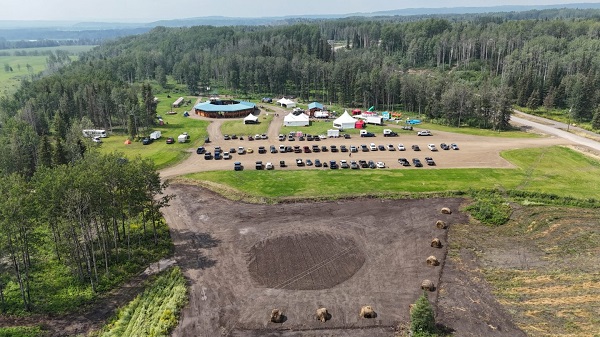
In northeast B.C., about 75 kilometres from Fort St. John, Halfway River First Nation sits in the heart of the Montney, one of North America’s largest natural gas plays. Photo courtesy Halfway River First Nation
From the Canadian Energy Centre
By Will Gibson
Greg Kist has seen plenty of change during more than three decades working in the energy industry. But the former executive with Petronas and Progress Energy has rarely experienced a history-making moment.
That happened in July 2024, when the B.C. government awarded the Halfway River First Nation what’s known as oil and gas tenure in the heart of the Montney play.
It’s an agreement that grants the Nation decision-making authority over the exploration and development of petroleum and natural gas resources on more than 34,000 hectares of Crown land in its traditional territory, located approximately 1,000 kilometres northeast of downtown Vancouver.
That agreement is now moving further into action with a deal between Halfway River-owned Tsaa Dunne Za Energy (TDZE) and ARC Resources.

Members of the Halfway River First Nation participate in a field tour with the BC Energy Regulator in June 2025. Photo courtesy BCER
The agreement, signed earlier this year, will see TDZE work with Calgary-based ARC to develop about 25 per cent of the tenured land.
The region is adjacent to ARC’s existing Attachie natural gas operations, which are rich in high-value natural gas liquids.
The company describes Attachie as one of its most profitable assets, which can be expanded thanks to the TDZE agreement.
“This land was deferred from development for more than two decades while sitting in the premier natural gas play in North America,” says Kist, one of TDZE’s managing executives.
“Unlocking it will generate all kinds of economic activity and royalties for the B.C. government that help pay for schools and health care. But it will also generate the same benefits for the Halfway River First Nation.”
ARC plans to integrate the new areas using existing roads, pipelines and other infrastructure from Attachie.
Developing the land will still require consultation with the Halfway River First Nation.

Drilling in the Montney play straddles the border between northeast B.C. and northwest Alberta. Photo courtesy ARC Resources
“This is very much about Tsaa Dunne Za Energy delivering the best return on this particular asset for its shareholders, which are the members of the Halfway River First Nation,” Kist says.
In addition to granting tenure to develop oil and gas on the land, the B.C. government and Halfway River have implemented a landscape planning pilot to mitigate the impacts of development on the Nation’s Treaty 8 rights and manage potential cumulative effects of new development.
“The tenure award and landscape planning pilot will help to ensure that oil and gas development in these areas is sustainable and managed in accordance with the values of the Halfway River First Nation,” Chief Darlene Hunter said in a statement.
Kist sees the agreement as a template for other governments, energy companies and First Nations to follow.
“This has the potential to be the model for cooperative development so that we can develop resources in the right way that benefits governments, First Nations and industry. I’m proud to be a part of this because everybody involved wins from this.”
-
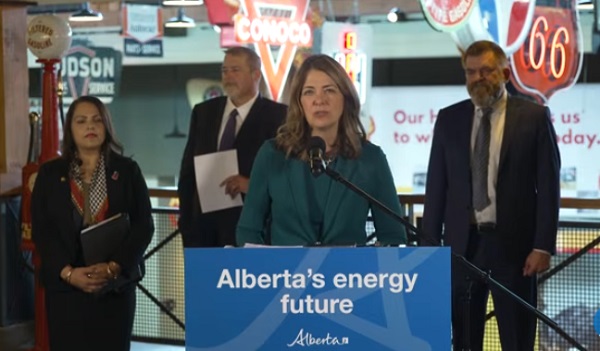
 Alberta15 hours ago
Alberta15 hours agoWith no company willing to spearhead a new pipeline under federal restrictions, Alberta takes the lead
-

 National1 day ago
National1 day agoCanada’s birth rate plummets to an all-time low
-

 Fraser Institute2 days ago
Fraser Institute2 days agoAboriginal rights now more constitutionally powerful than any Charter right
-

 Alberta2 days ago
Alberta2 days ago$150 a week from the Province to help families with students 12 and under if teachers go on strike next week
-

 espionage1 day ago
espionage1 day agoNorth Americans are becoming numb to surveillance.
-

 Crime1 day ago
Crime1 day agoPierre Poilievre says Christians may be ‘number one’ target of hate violence in Canada
-

 Alberta15 hours ago
Alberta15 hours agoTaxpayers: Alberta must scrap its industrial carbon tax
-

 Alberta14 hours ago
Alberta14 hours agoHalfway River First Nation makes history with Montney natural gas development deal


